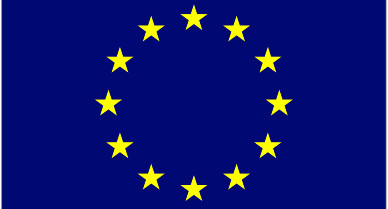Our latest contribution on the TaxJar blog in the US…
Guide to European VAT for B2B Digital Services Sellers
We recently published a post on the basics of complying with European VAT when selling digital products to consumers (B2C.)
In that post, we talked about how VAT in a B2C situation usually applies in the European country where the consumer is situated.
In the past, this meant that U.S. digital suppliers were literally required to register for VAT in each European country where they carried out B2C sales of digital services, with no minimum sales threshold applying (i.e. the letter of the law stated that they had to collect VAT even in the case of a single, low value sale).
VAT on B2B Digital Services Sales
However, in the aim of making life for non-EU digital businesses a bit easier, in 2010 the European Union introduced a computerized system that allows non-EU businesses supplying digital services to European consumers to account for VAT in one or more country without the need to register for VAT in each European country: the Mini-One-Stop-Shop (MOSS). This system makes it much easier to collect VAT from EU customers, as a non-EU seller.
Let’s dig into how VAT works for non-EU businesses selling digital products to U.S. buyers.
In accordance with European VAT law – which becomes applicable in all EU countries after being transposed into national laws – supplies of digital services made by U.S. businesses (or non-EU suppliers, in general) to European businesses are subject to VAT in the country where the business’s customer is located.
However, the U.S. supplier does not need to register for VAT in the European country where the supply is subject to VAT, nor do they need to use the above mentioned MOSS system to account for (and report) VAT.
The reason is that, in accordance with EU law, in the case of cross-border B2B supplies VAT is accounted for by the business client under the so-called “reverse charge” mechanism.
What is this “reverse charge” mechanism?
The best description is probably given by the UK tax authorities: “When you buy services from suppliers in other countries, you may have to account for the VAT yourself – depending on the circumstances. This is called the ‘reverse charge’, and is also known as ‘tax shift’. Where it applies, you act as if you’re both the supplier and the customer. You charge yourself the VAT and then (assuming that the service relates to VAT taxable supplies that you make) you also claim it back)”.
Thus, U.S. or other non-EU sellers are not required to handle VAT. And buying a service under the reverse charge system is quite convenient for the customer from a financial standpoint; indeed, no VAT is actually paid by the customer.
For digital services sellers, it looks like a win-win.
However, given the financial benefit, some unscrupulous customers may be tempted to declare to U.S. suppliers that they are “business customers” in order to dodge the application of VAT by the merchant.
How to Determine if Your EU Customer is a Business
So the question arises: how can the U.S. business each time verify that the customer is in fact a “business” and not an individual?
They can control the identity of the business customer by asking the latter to supply a valid VAT number – only businesses can be granted a VAT number – and then check the validity of the VAT number on the VIES validation system.
The VIES will immediately tell the U.S. merchant whether this VAT number is valid and really belongs to that specific business customer. If the outcome is negative, digital suppliers are encouraged to treat the supply as a retail sale and to apply VAT accordingly (and should read European VAT Demystified for Non-European Digital Services Sellers).
Not All “Digital” Sales are Created Equal
One last warning: be careful that you are adhering to the definition of “electronically supplied services.” Because other services, which don’t strictly fit this definition, may be subject to completely different VAT rules.
Example:
A U.S. business sells tickets to a rock concert in Paris, France to a dealer located in Germany, who would then resell the tickets. According to EU regulation nr. 282/2011 this is not considered a “digital service” for EU VAT purposes.
This type of service, instead, will be subject to VAT in the country where the concert takes place (France) and not where the business customer is established (Germany). Accordingly, the American supplier will need to register for VAT in France. This is not considered a B2B service, and the MOSS system is not applicable.
VAT regulations can be complex, and it may not always be so simple to determine if you are complying with the law. We always recommend you contact a VAT expert should you have a question or need assistance complying with VAT!
Alan Rhode is a co-founder at Taxmen.eu, the one-stop-shop provider of VAT registration and compliance services for e-commerce in all the European jurisdictions under the EU distance selling scheme. A 10% discounted fee will apply to the TaxJar readers in the need for VAT registration in one or more European states. Email: info@taxmen.eu
Link to the article: http://blog.taxjar.com/guide-european-vat-b2b-digital-services-sellers/

